
Around the Bloc: Detained Russian Governor on Hunger Strike
Kremlin critic says he was framed and that he’s ready to explain everything.
More...We kindly inform you that, as long as the subject affiliation of our 300.000+ articles is in progress, you might get unsufficient or no results on your third level or second level search. In this case, please broaden your search criteria.

Kremlin critic says he was framed and that he’s ready to explain everything.
More...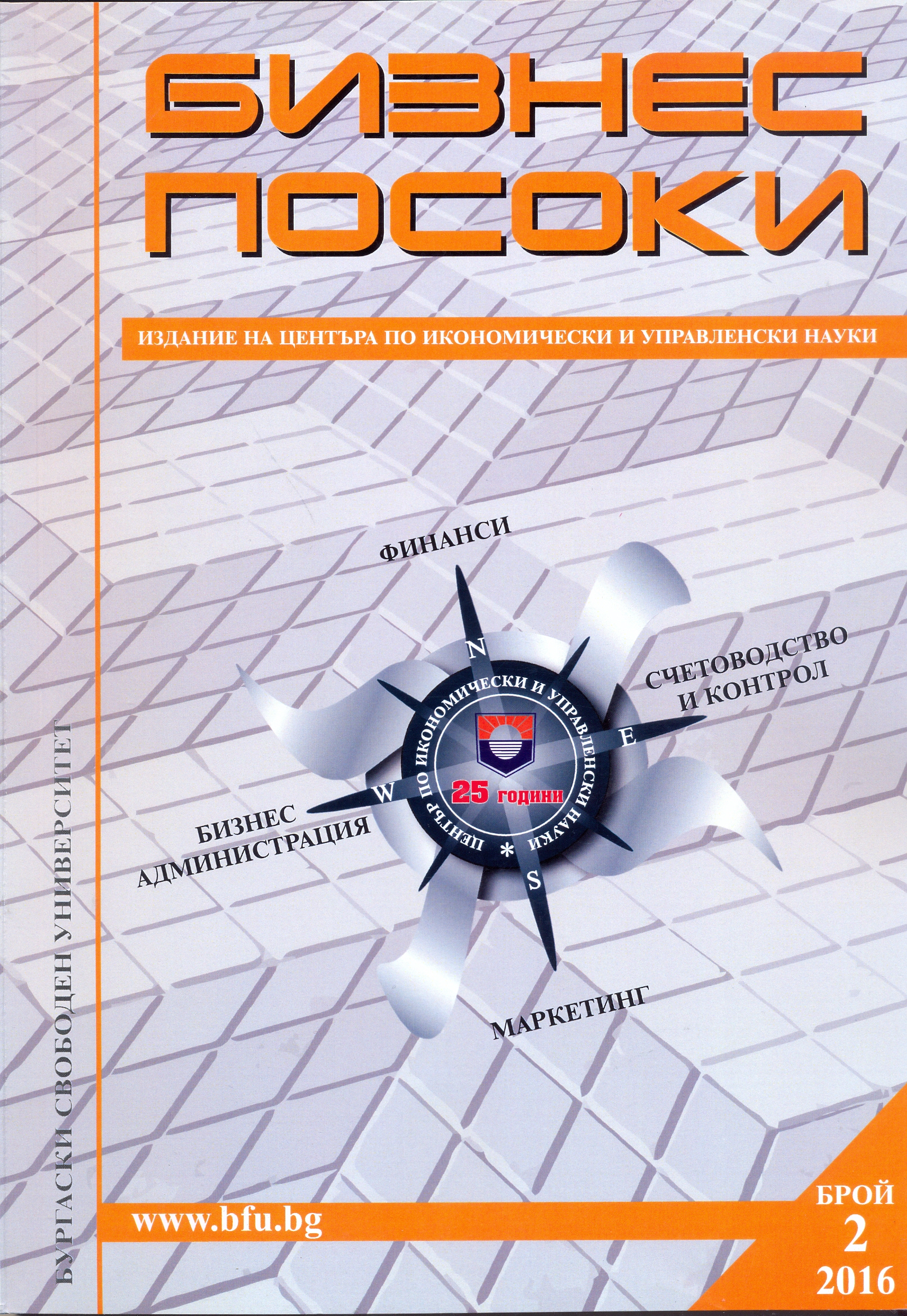
The article is an attempt to look, in an analytical and contrastive way, at the accounting principles of the Accounting laws in force both before and after 2016. To find the philosophy of the accounting principles we start from: the normative regulation of Accounting; the two accounting schools: the European-Continental and the Anglo-Saxon; the importance of the accounting information, based on the accounting principles, and the essence of Accounting as a social science. In order to look in a contrastive way at the topic of the accounting principles in full scale, presented are not only the accounting principles regulated in both Accounting laws but in the International Accounting Standards and their continuation: the International Standards of Financial Reporting, which are carried out by the European Union (as far as these principles are applicable for enterprises that have chosen the group of the International Accounting Standards as their accounting basis). On that base reflections are made and conclusions are drawn.
More...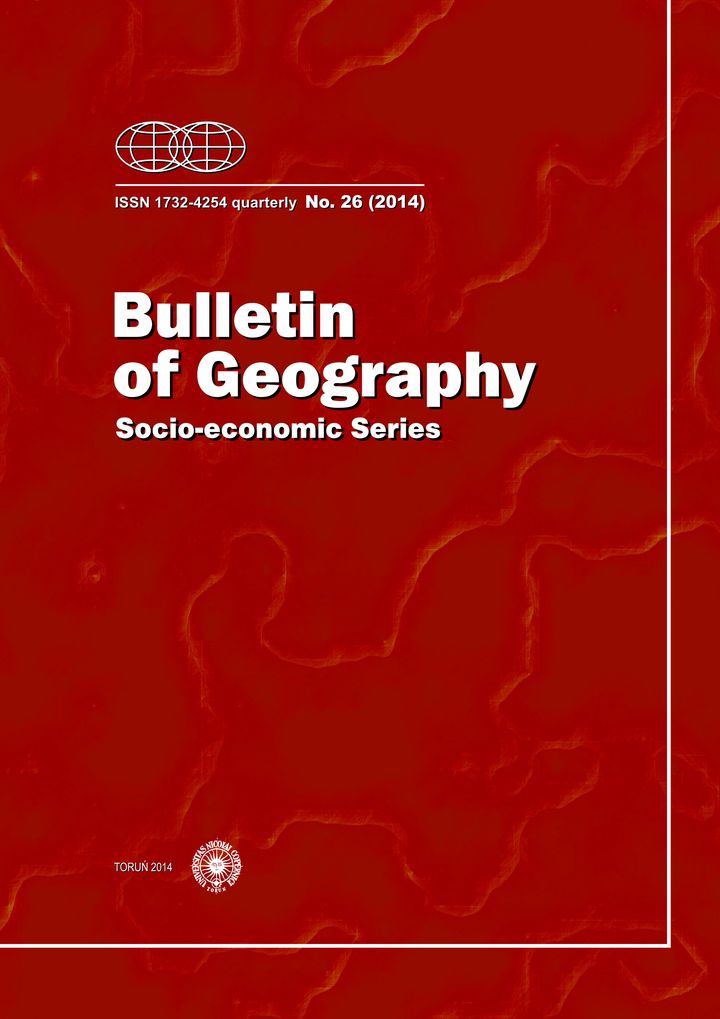
Within sub-Saharan Africa South Africa is one of the leaders in greening and initiatives for sustainable urban development. Notwithstanding the central role of climate change impacts and of the green challenge for the future, the greening of urban development has not been a major focus in local geographical research. The task in this paper is to investigate one aspect of reorienting the economy towards a pathway of low carbon growth and of addressing the green urban challenge. Specifically, issues around the greening of commercial property developments in South Africa are explored. Under the ratings of the Green Building Council of South Africa 50 green buildings existed by early 2014. Geographically these properties cluster in South Africa's major cities, in particular Johannesburg, the country's economic powerhouse and centre for corporate headquarters, and Pretoria, the administrative capital. New proposals for building retrofitting may result in a greater spatial spread of green buildings in the near future.
More...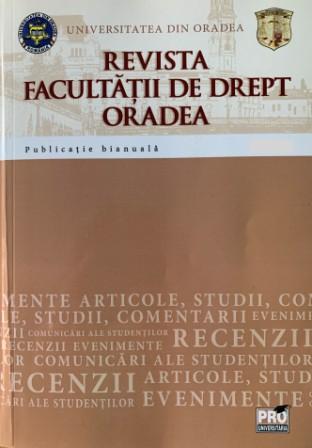
The digital innovations had a significant effect to the Hungarian tax procedures in the last years, which is the topic of this article. I will review these major milestones in connection with the Hungarian tax rules. Firstly I deal with the most important rules of the Electronic Road Traffic Control System; - the so called „EKAER” System. Because of the increased trade and the establishment of international chains the transporting of goods became more and more complex. That is the reason why the traceability of goods is emphasized nowadays. From 1 January 2015 the road transportation control system was introduced in order to prevent VAT fraud.2 In the second part I review the Online Account system, which can effectively help to ensure the highest possible level of tax revenues. Finally I deal with the personal income tax, because from the 1 January 2017 the National Tax and Customs Administration prepare the draft personal income tax return, which is available electronic.
More...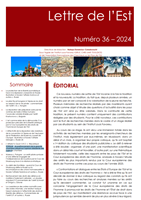
This study provides an analysis of the judgment of the European Court of Human Rights against Hungary, in which it was found that the right to private life had been violated because of publishing of personal data of defaulting taxpayers on the website of the tax administration. The author reports on the review carried out by the European judges, who confirm, on the one hand, the existence of a national margin of appreciation, but on the other hand, carry out a questionable review of the quality of the parliamentary examination of the law providing for the measure in question in order to conclude that there has been a violation of Article 8.
More...
In view of the evolution of the constitutional structure of tax justice, the author analyzes the tension between the unified application of tax justice to the three financial perimeters, that is to say, state finances, historically recognized by the Constitution of the Fifth Republic, but also local finances and social finances, as well as their specificities. However, the singularity of local finances calls for a specific study on its interweaving with tax justice.
More...
AI-driven pricing has become vital in the smart economy, boosted by advancements in IoT, AI, and big data. While robots and AI systems enhance efficiency and drive innovation across digital commerce platforms, they also raise competition law concerns. Algorithmic collusion is a prime example, as autonomous algorithms can independently coordinate market behaviour, challenging traditional liability frameworks. Though competition laws in regions like the EU, US, and China generally prohibit algorithmic collusion, the complex structures of these algorithms make it difficult to pinpoint responsible parties and assign liability accurately. This paper explores these complexities and examines algorithmic collusion's implications for liability attribution through a comparative lens. While EU case law provides some regulatory guidance, it often falls short in addressing the unique nature of algorithmic collusion. China’s approach is more restrictive, at times overlooking the autonomy of advanced AI systems. Given its distinct characteristics, algorithmic collusion requires a regulatory approach that differs from traditional collusion, particularly regarding liability. Additionally, this paper argues for the potential special liability of AI designers, who, given their expertise and control over AI, may need to adhere to higher ethical standards. These considerations suggest a need for regulation that both safeguards fair competition and fosters innovation in the evolving digital economy.
More...
Artificial intelligence (AI) is undoubtedly an emerging technology and an important component of the future of financial and fiscal legislation, with the potential to significantly improve the way taxpayers interact with tax authorities and how society’s financial resources are managed. The aim of this paper is to analyze the impact of AI on the processes of understanding, deepening, and applying financial and fiscal legislation. Our approach follows the structure below: (1) Introductory considerations; (2) Overview of financial-fiscal legislation; (3) Facilitating access to financial-fiscal legal information and improving the legal interpretation process through AI; (4) The use of AI systems in the deepening and application of financial-fiscal law; (5) Some challenges and limitations; the future of ai in financial-fiscal legislation; (6) Conclusions, research limitations, and future directions of study. Primarily, our conclusion is that AI represents an innovative tool for the in-depth understanding and efficient application of financial and tax legislation, supporting both professionals and taxpayers in comprehending and complying with legal norms, while reducing risks and optimizing fiscal management processes.
More...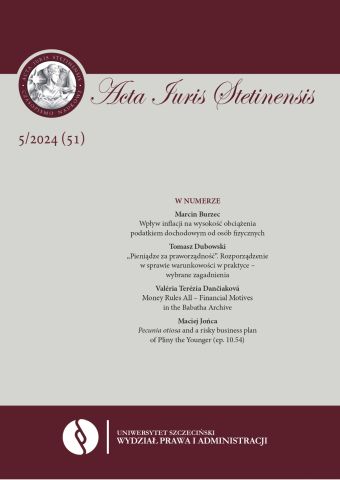
Regulation (EU, Euratom) 2020/2092 of the European Parliament and of the Council of 16 December 2020 on the general system of conditionality to protect the Union budget entered into force in January 2021. It essentially aims to establish the mechanisms necessary to protect the Union budget in the event of violations of the rule of law in the Member States. As such, it becomes, in simple terms, an instrument that makes the transfer of EU funds conditional on member states’ respect for the rule of law. The main aim of this study was to assess the application of the conditionality regulation in practice from the point of view of the protection of the rule of law and its role in this regard. The considerations presented are aimed at determining whether the practical implementation of the regulation on conditionality confirms its “usefulness” for strengthening the rule of law in the Union’s member states. The analyses undertaken should thus – with reference to the leitmotif of the Volume – make it possible to determine to what extent “EU money”, within the framework of the procedures established by the Regulation, effectively strengthens the rule of law by motivating member states to behave in a certain way. In this context, the dogmatic-legal method (combined with a case study) was made the leading research method. At the same time, the article was divided into three parts, including the presentation of the genesis and analysis of the purpose and main objectives of the regulation in the context of protecting the rule of law, cases of its practical application, and the effects of the implementation of the regulation, along with their evaluation. The analyses conducted led to the following main conclusions:– the conditionality regulation is an instrument that protects the budget and financial interests of the European Union – as such, however, it protects them from violations of the rule of law, and in this light, respect for the rule of law becomes the basis and prerequisite for effective implementation of the EU budget in accordance with the principle of sound financial management;– the regulation provides relatively clear criteria for the implementation of the budget protection procedure and a relatively clear procedure for the application of protection measures;– it can be concluded that the conditionality mechanism provided for in the regulation, when applied consistently and rigorously, is likely to strengthen the rule of law in EU member states – the case under review seems to confirm this thesis.
More...
Regulation (EU, Euratom) 2020/2092 of the European Parliament and of the Council of 16 December 2020 on a general regime of conditionality for the protection of the Union budget entered into force in January 2021. It seeks to establish mechanisms necessary to protect the Union budget in the event of breaches of the rule of law in the Member States. In simple terms, the Regulation thus becomes an instrument making the transfer of EU funds conditional on Member States’ respect for the rule of law. The aim of this study is to assess the application of the Regulation in practice from the point of view of the protection of the rule of law and its role in this respect. The discussion aims to determine whether the implementation of the Conditionality Regulation confirms its “usefulness” for strengthening the rule of law in the EU Member States. This analysis should thus allow us to determine to what extent the “EU money”, in the framework of the procedures established by the Regulation, effectively strengthens the rule of law by motivating Member States to certain behaviours. In this light, the investigation of the law in force is used as the main research method herein. The article is divided into three parts covering the origin and the analysis of the purpose and main assumptions of the Regulation in the context of the protection of the rule of law, cases of its practical application and the effects of the implementation of the Regulation together with their assessment. The analysis has led to the following main conclusions:1. The Conditionality Regulation is an instrument that protects the budget and financial interests of the European Union – as such it protects them against violations of the rule of law and, in this light, respect for the rule of law becomes the basis and necessary condition for the effective implementation of the EU budget in accordance with the principle of sound financial management.2. The Regulation provides for relatively clear conditions and criteria for implementing the budgetary protection procedure and a relatively clear procedure for applying safeguard measure.3. The conditionality mechanism provided for in the Regulation, with its consistent and rigorous application, has a chance to strengthen the rule of law in the EU Member States – the case under discussion seems to confirm this thesis.
More...
This article focuses on examining the legal regulation of digital currency circulation inthe Russian Federation. The author studies the main provisions of the Federal Law of July 31, 2020No. 259-FZ “On Digital Financial Assets, Digital Currency and on Amendments to Certain LegislativeActs of the Russian Federation”, which enshrines the normative definition of the concept and thebasic principles of digital currency circulation in the Russian Federation. Specific types of transactionswhere the use of digital currency is permitted are identified, and the introduction of the digitalruble, a national digital currency issued by the central bank, which is intended to play a significantrole in settlements is defined. The article concludes that the existing conceptual framework containscertain contradictions and suggests that the terms “private digital currencies” and “public digitalcurrencies” should be formally defined and established in legislation.
More...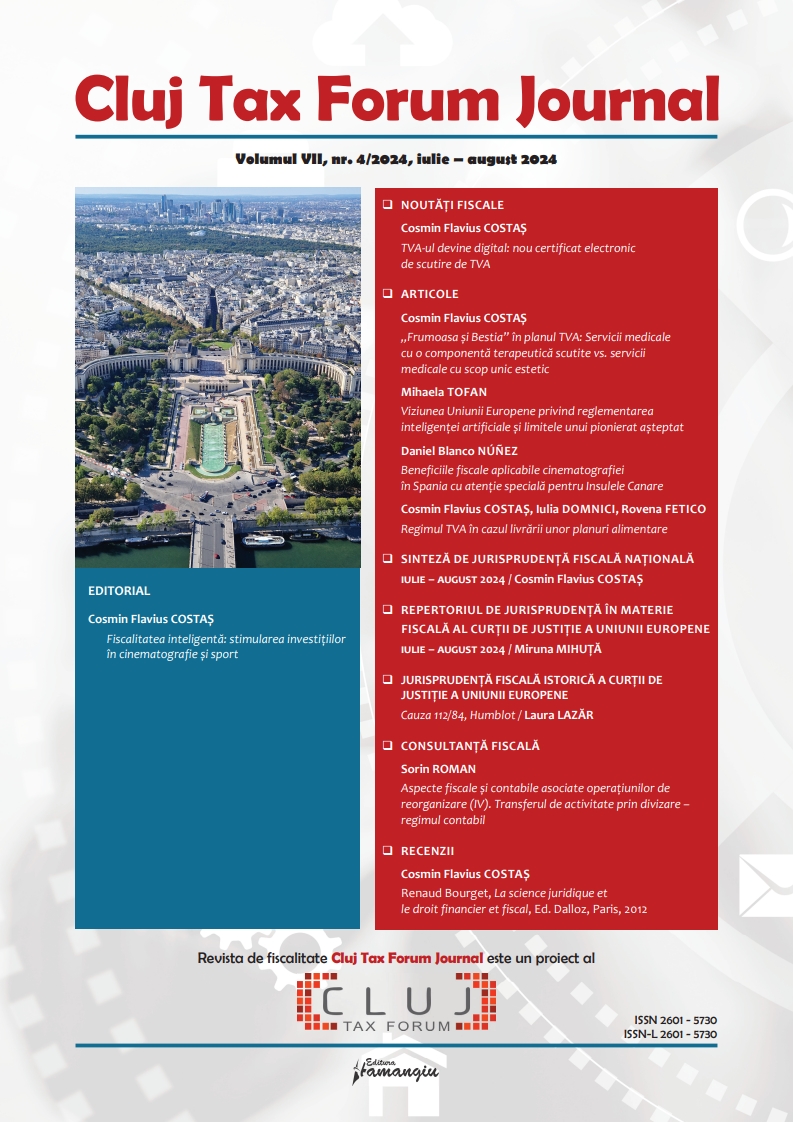
The Humblot case‑law represents a landmark decision in the field of European Tax Law, addressing the issue of indirect discrimination in national taxation systems. The Court of Justice ruled that the French tax system, which imposed a disproportionately high fixed tax on vehicles, exceeding a certain fiscal horsepower threshold, violated Article 95 of the EEC Treaty (now Article 110 TFEU). Although the system appeared neutral, it disproportionately affected imported vehicles, creating a protective effect for domestic products. This case underscores the principles of fiscal neutrality and non‑discrimination within the EU’s internal market. It also highlights the balance between national fiscal autonomy and the obligations imposed by EU law. The judgment continues to serve as a key precedent for ensuring fair competition and harmonized interpretation of fiscal measures across the Union.
More...
The digital transformation of the media industry brings new challenges and opportunities, with AI becoming an integral part of the creative, analytical and distribution processes. This article explores how AI is shaping the media industry, particularly in the context of supporting creative work, automation and personalisation of content, as well as precision targeting in marketing and political communications. It analyses the historical development of AI in media, its current applications and trends, focusing on cases where AI is complementing human creativity rather than replacing it. Particular attention is paid to the analytical use of AI in the media, to the personalisation of content, automation of news reporting, and to the use of AI in marketing strategies. The article also discusses ethical and legal issues, in particular the issue of trustworthiness of AI-generated content, regulation of misinformation, and copyright protection. Methodologically, the article uses the method of qualitative synthesis and brief case studies in order to describe specific applications of AI in various segments of media production and distribution. The article also provides predictions for the future development of AI in media, respecting the highly dynamic nature of this technology, which naturally implies that certain findings may already be partially surpassed by the time of the publication of the study.
More...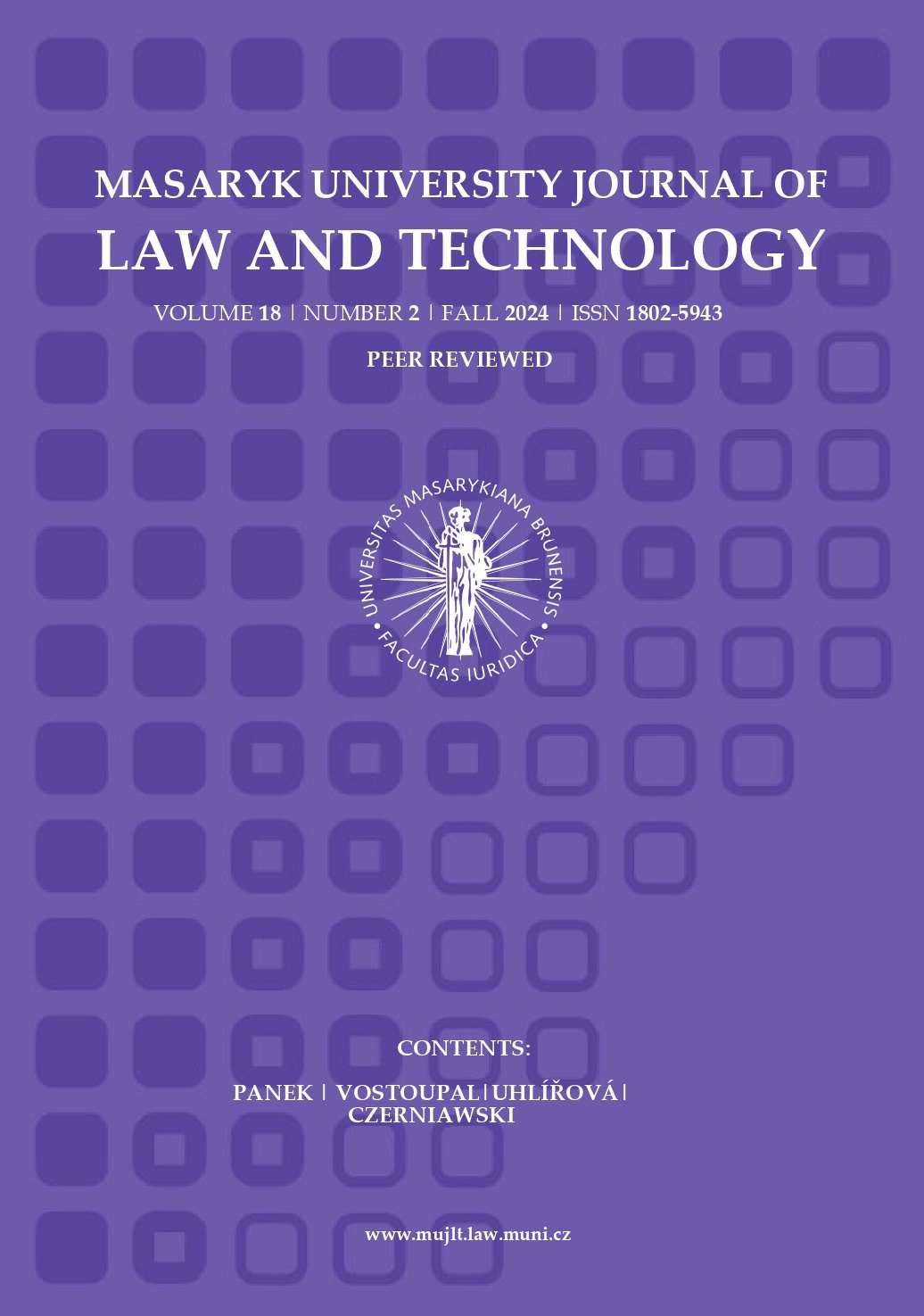
Chinese data protection seems to be problematic. On the one hand, it does exist, at least formally, especially after the reform initiated by the adoption of the Cybersecurity Law and finished by the Personal Information Protection Law entering into force. However, the mere adoption of personal data protection regulations does not guarantee that they provide personal data protection at an appropriate level. For EU law, the adequacy standard is the reference point for verifying personal data protection in a third country. Therefore, it is necessary to meet specific criteria summarising the term of essential equivalence, as introduced by the Court of Justice of the European Union. This article discusses the three most critical problems that result from comparing the provisions of the Chinese Cybersecurity Law, the Civil Code, the Data Security Law and the Personal Information Protection Law with the EU’s adequacy standard. The article consists of the introduction, four parts and closing remarks. The first part explains the methodology of research on Chinese data protection law and criteria applied to its examination. The second, third and fourth parts discuss the complicated relationships between the laws related to the protection of personal data, the status of state authorities as data controllers and multi-stakeholder supervision over personal data protection.
More...
With the entry into force of Directive 95/46/EC, the EU based its approach toward data transfers on adequacy decisions, unilateral acts of the European Commission, issued as implementing acts. The EU co-legislators subsequently copied this model into the GDPR and the LED. Since the very beginning, the adequacy procedure involves a comitology phase in which a committee consisting of representatives of Member States expresses its opinion about the Commission's draft implementing act. I argue that adequacy, designed as a technical process, evolved into a tool in which politics, including economic relations and commercial interests, play an ever-greater role. This goes against the concept of comitology, the legitimacy of which is built on denying the political nature of what is delegated. Taking into account the above, as well as other shortcomings of the EU adequacy model, I argue that it is the right time to rethink it. There is also the need for a separate discussion regarding the role of the Article 93 Committee in the adequacy procedure, to be conducted together with the debate on the role and accountability of the European Commission.
More...
The importance and necessity of criminalizing acts that pollute the environment no longer needs to be demonstrated, taking into account the fact that, most of the time, environmental pollution seriously endangers the health and life of people, animals and plants. In Romania, environmental protection through criminal law is a relatively recent concern of the legislator, due in particular to the expansion of the crime phenomenon.The topic of reparation of damages cannot be approached in a unified manner, in particular, because environmental damages have certain distinctive characteristics compared to common law. While in common law the damage represents the negative effect suffered by a person as a result of an unlawful act committed by another person, or as a consequence of the act of a thing or animal under his care, the fundamental principle being restitutio in integrum, in environmental law, in the event of the destruction of ecological balances, if the damage is irreversible, it cannot be repaired in nature.
More...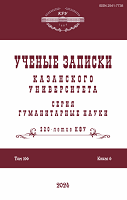
This article presents the results of a survey of the origins and development of the Kazan school of financial law at Kazan University during the era of significant transformations in the interplay between Russia’s legal, state, and economic systems. The critical role of reforms in the first half of the 19th century, which were a response to the evolving economic and political landscape of Russia, in shaping the principles of financial law as a science was demonstrated. A detailed analysis of the pioneering views and works of such financial scholars as I.Ya. Gorlov, E.G. Osokin, D.M. Lvov, and P.A. Nikolsky was performed, highlighting their pivotal impact on the emergence of financial science at Kazan University. It was concluded that, by the mid-19th century, Kazan University had established a distinct financial law school, thus contributing considerably to the financial law doctrine of pre-revolutionary Russia.
More...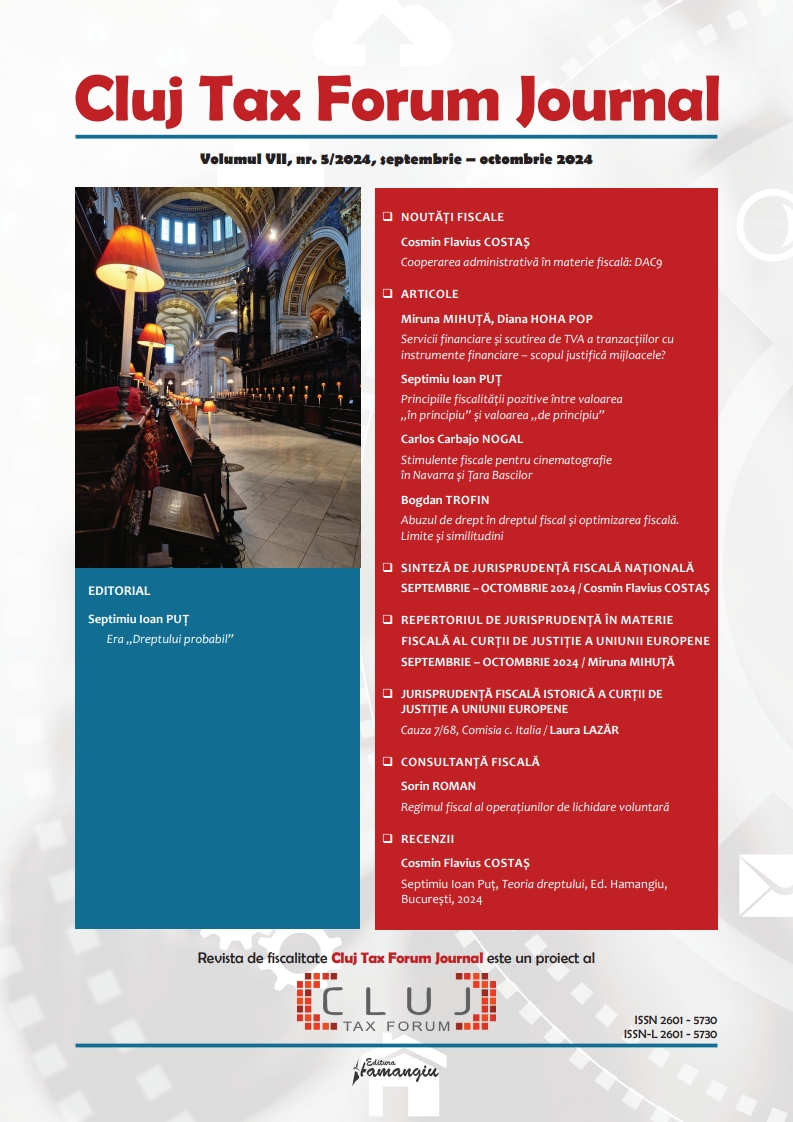
VAT: Norway and the European Union strengthen administrative cooperation, the fight against fraud, and the recovery of tax claims. The Member States of the European Union have updated the list of non-cooperative tax jurisdictions. Administrative cooperation in tax matters: DAC9.
More...
Through specific tax policy instruments, in recent years in Romania, in many cases the value of principle has been replaced by the value „in principle”, which marks an unforgivable relativization of the legal effects specific to principles, especially the „legal principles” of taxation. The legal value of the principle, specific, inherent to the principle, has been downgraded, relativized to the value „in principle”, which allows and sustains multiple exceptions that invalidate, partially or totally, the tax principle, whether we have a standard‑principle, a higher‑principle or a principle extracted from case law.
More...
Certain fiscal conduct can be interpreted differently depending on who is doing the interpreting. What for a taxpayer may represent a tax optimization measure, for the tax authorities may represent an abusive exercise of a right. The consequences of each hypothesis are diametrically opposed, with direct repercussions on the tax situation of the taxpayer, a fact that pleads for consideration and prudence in drawing a conclusion, regardless of meaning. Also, the notions of tax law abuse and tax optimization must be delimited from other neighbouring notions, such as tax evasion and tax fraud. In order to fit a certain fiscal conduct into one category or another, it is necessary to define, understand and operate in a clear manner with all these concepts.
More...